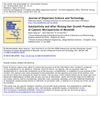 2 citations,
April 2008 in “Journal of Dispersion Science and Technology”
2 citations,
April 2008 in “Journal of Dispersion Science and Technology” Shampoos with more than 0.6% of cationic minoxidil particles can promote hair growth.
 11 citations,
February 2018 in “Amino acids”
11 citations,
February 2018 in “Amino acids” Copper and iron cause keratin damage in hair by converting methionine to homocysteine.
5 citations,
September 2018 in “International journal of genomics” Genetic mutations that disrupt homocysteine breakdown lead to increased damage in mouse hair keratin.
10 citations,
April 2020 in “Journal of surfactants and detergents” Shampoos with sugar-derived surfactants clean hair well and are gentler than those with SLES.
 24 citations,
November 2009 in “Pharmaceutical Development and Technology”
24 citations,
November 2009 in “Pharmaceutical Development and Technology” Transcutol P best increases Finasteride absorption for hair loss treatment.
 June 2022 in “International Journal for Research in Applied Science and Engineering Technology”
June 2022 in “International Journal for Research in Applied Science and Engineering Technology” The herbal shampoo made from Piper Betel and Psidium Guajava leaves was safe, promoted hair growth, and reduced hair fall.
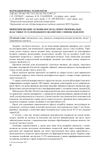
Anionic surfactants significantly improve the foaming of minoxidil gel shampoo.
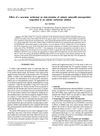 2 citations,
November 2009 in “Korean journal of chemical engineering”
2 citations,
November 2009 in “Korean journal of chemical engineering” Adding Brij 78 to minoxidil microparticles in a certain solution helps them stick to the skin better and prevents clumping.
 September 2022 in “International journal of pharmaceutical quality assurance”
September 2022 in “International journal of pharmaceutical quality assurance” The herbal shampoo is less damaging and improves hair's appearance.
The modified stem cells with VEGF165 in a special scaffold improved blood vessel growth and wound healing for skin repair.
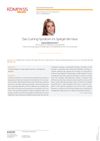 January 2018 in “Karger Kompass”
January 2018 in “Karger Kompass” Skin symptoms like fragile skin and easy bruising can indicate Cushing's syndrome, which requires early diagnosis and treatment to prevent serious health issues.
January 2018 in “대한미용학회지” White hair is denser and more hydrophobic than black hair.
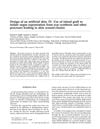 13 citations,
March 1998 in “Journal of Biomedical Materials Research”
13 citations,
March 1998 in “Journal of Biomedical Materials Research” Island grafts can help study skin regeneration separately from other healing processes.
Modern shampoos use a mix of surfactants and other ingredients to clean, reduce irritation, and improve performance.
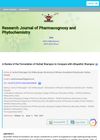 November 2024 in “Research Journal of Pharmacognosy and Phytochemistry”
November 2024 in “Research Journal of Pharmacognosy and Phytochemistry” Herbal shampoos are safer and effective for hair care compared to chemical shampoos.
 October 2023 in “Journal of Cosmetic Dermatology”
October 2023 in “Journal of Cosmetic Dermatology” Using both minoxidil and finasteride together is more effective for hair growth than using either one alone in men with hair loss.
 68 citations,
February 1996 in “Obesity Surgery”
68 citations,
February 1996 in “Obesity Surgery” Taking zinc sulphate stopped and reversed hair loss in patients after weight loss surgery.
 February 2013 in “Journal of The American Academy of Dermatology”
February 2013 in “Journal of The American Academy of Dermatology” Finasteride solution helps treat hair loss.
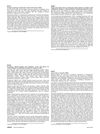 April 2013 in “Journal of the American Academy of Dermatology”
April 2013 in “Journal of the American Academy of Dermatology” Diabetic patients often have ingrown nails due to obesity, high blood pressure, past injuries, bad nail trimming, nail fungus, weak foot pulse, and weak knee reflex.
3 citations,
January 2012 in “Shijie zhongxiyi jiehe zazhi” The compound zishenqing formula is effective and safe for treating mild to moderate systemic lupus erythematosus.
1 citations,
September 2022 in “Oxidative Medicine and Cellular Longevity” Hair follicle stem cells can help treat ulcerative colitis in mice by releasing beneficial exosomes.
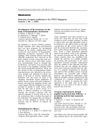 5 citations,
May 2004 in “International Journal of Cosmetic Science”
5 citations,
May 2004 in “International Journal of Cosmetic Science” Versican is important for hair growth and could help find new hair regrowth treatments.
90 citations,
January 1989 in “PubMed” 17 citations,
January 2015 in “Dermatology online journal” A patient's grey hair regained color during treatment with adalimumab.
 13 citations,
September 2019 in “Scientific Reports”
13 citations,
September 2019 in “Scientific Reports” High levels of the protein Flightless I worsen ulcerative colitis symptoms in mice.
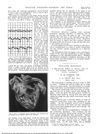 22 citations,
March 1932 in “Journal of the American Medical Association”
22 citations,
March 1932 in “Journal of the American Medical Association” Thallium poisoning from contaminated tortillas caused severe symptoms and was mostly fatal or led to long-term health issues.
 3 citations,
November 2020 in “Planta medica international open”
3 citations,
November 2020 in “Planta medica international open” Plant-made bFGF helps cells grow and boosts collagen.
September 2016 in “Toxicology letters” The 5050 MHA42MCS45 hydrogel blend is suitable for repairing load-bearing soft tissues.
10 citations,
August 2021 in “Cosmetics” The best shampoo formula used 1% high-weight hyaluronic acid, 10% acidic sophorolipid, and 1% salt for effective hair conditioning and cleansing without sulfates or silicones.
September 2017 in “Journal of Investigative Dermatology” Activating the hexosamine pathway can improve skin health and increase hair follicle stem cells.


















